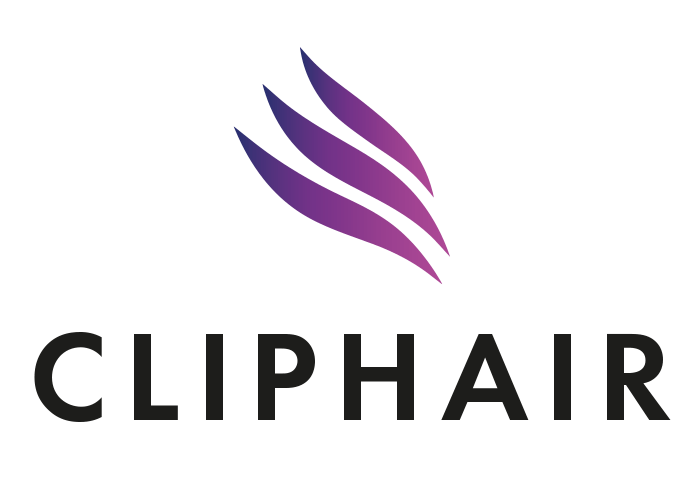What Type Of Hair Do I Have?
by ABBEY WILSON / DEC 14, 2022
Reading Time: 5 Minutes
Index
It would seem there is a product for just about everyone out there in today’s world, no matter what the concern is. Whether your hair's thick, thin, fine, coarse, curly, frizzy, wavy, or anything in between there will be a miracle potion to suit your personal need. But what if you’re not sure what your hair type is? In today's blog, we are going to explain each of the most common hair types and which products are best suited to that group to help you give your hair the love it deserves!
1. What Is Thin Hair?
Thin hair also known as sparse hair, refers to the hair density, so the amount of hair that is on the head as opposed to the thickness of the actual hair strand. A thin-haired person will have fewer “hairs” on the head than the average amount which generally shows more around the hairline and crown area. You may notice when the hair is pulled back into up-dos the scalp is slightly visible through the hair and the ends appear wispy, especially around the face. You can be born with naturally thin hair, or it can be caused by health problems, overprocessing or aging.
2. What Hair Product Is Best For Thin Hair?
As thin hair is one of the most common hair types in the world, there are tons of products and solutions to help tackle it. Thickening shampoos are great as they work to actually expand the thickness of the hair strand giving an overall appearance of thicker, fuller hair and as they are specifically designed for thinner hair they do not weigh the roots down removing much-needed volume.
Lightweight hair extensions are also a fabulous fix to give your thin hair that boost of thickness you’ve always dreamed of. You can find safe and un-damaging varieties that have been specially designed for use on thin hair; I’ve listed our 2 best temporary and permanent choices below. If you want to know more about using hair extensions on thin hair check out our dedicated blog "Which hair extensions are best for thin & fine hair?"
- Seamless Clip-Ins – Temporary, lightweight, and discreet
- Nano Ring Hair Extensions – Semi-Permanent, least damaging, and extra discreet (most popular)
3. Is Thin And Fine Hair The Same?
This is one of the most asked questions and the answer is no, they are not the same. As explained above, thin hair refers to the density or amount of hair, fine hair is describing the actual thickness or structure of each hair strand. So, while it is technically possible to have both fine hair and for it to be thick (lots of it) too it's more common to see thin hair that is also fine. This is why the two terms are used interchangeably and often get confused.
4. So, What Is Fine Hair?
Fine hair is the thinnest of hair structures. The strand is quite thin which means it tends to be weaker and more vulnerable. Fine-haired people often find their hair lacks volume at the roots and is easily broken during heat styling or bleaching. Fine hair is also silkier and often straighter than other hair types which is why it can be trickier to get the volume to stick around after styling!
5. What Are The Best Styling Products For Fine Hair?
With fine hair it's best to avoid heavy products like oils and creams, these can weigh the hair down even if they are described as suitable for fine hair. Hair serums or moisture sprays are a fantastic alternative to oils and do a very similar job. They work to keep frizz at bay and add dazzling shine without weighing the hair down with a heavy residue that can demolish the style you’ve put in. Cliphair's Silky Moisture Spray does exactly that with a moisture-locking formula to smooth and eliminate frizz without causing greasiness, it's perfect for use on Hollywood waves and smoother styles and hair extensions. However, if you’ve got fine hair and you’ve opted for a big, bouncy do like a blow-dry avoid serums and moisture altogether, and choose a hairspray with some hold to keep your style in for longer.
6. What Is Coarse Hair?
Coarse hair is referring again to the structure and thickness of the individual hair shaft. Coarse hair is the thickest structure type and tends to have a more wavy and unruly behaviour which can at times be hard to manage. A huge advantage of having coarse hair is that it's stronger and more resistant than finer hair types so it tends to be healthier, it also has more natural movement and volume so curly styles will stay put for longer. Smooth and sleek styles can be tricky to achieve on coarse hair though as the natural movement and texture fight their way out when hit with humidity or environmental factors.
7. How To Make Coarse Hair Soft And Silky?
With the use of some miracle products and the right styling equipment, you can transform your coarse, dry hair into soft and silky locks quite easily! Leave-In conditioners and smoothing oils are your best friends to keep the stubborn frizz and curls at bay. A lot of people with thick, coarse hair swear by having a deep conditioning treatment applied 1-2 times per fortnight to help control the unruliness in the hair. For me Moroccan Oil products are hard to beat when it comes to tackling this hair type, the multi-purpose oil treatment can be used during washing, drying, and after styling to keep the hair silky.
If you’d prefer a more permanent solution to your coarse hair problems, you might consider a Brazillian blow-dry which keeps the hair smooth for 3-4 months! Check out our blog "Everything you need to know about Brazillian Blow-drys" to find out more.
Looking for flawless, salon-worthy hair without breaking the bank? At Cliphair, we’ve got you covered with luxurious clip in hair extensions for quick transformations and permanent hair extensions for long-lasting glam. Extensions require special care and maintenance to preserve their quality, which is why we have all the top-notch hydrating haircare products needed to keep your style on point.
Need the perfect shade? Browse our full range of human hair extensions in over 70 rich, silky shades or check out our FREE Express Color Match Service to ensure a seamless blend every time.






